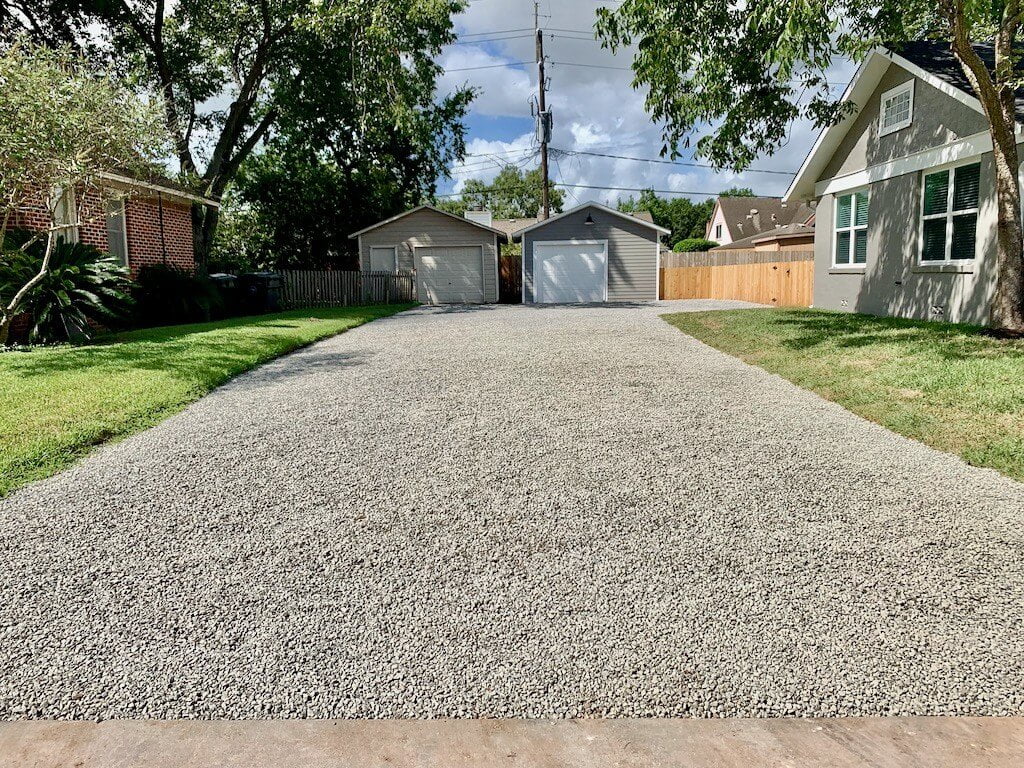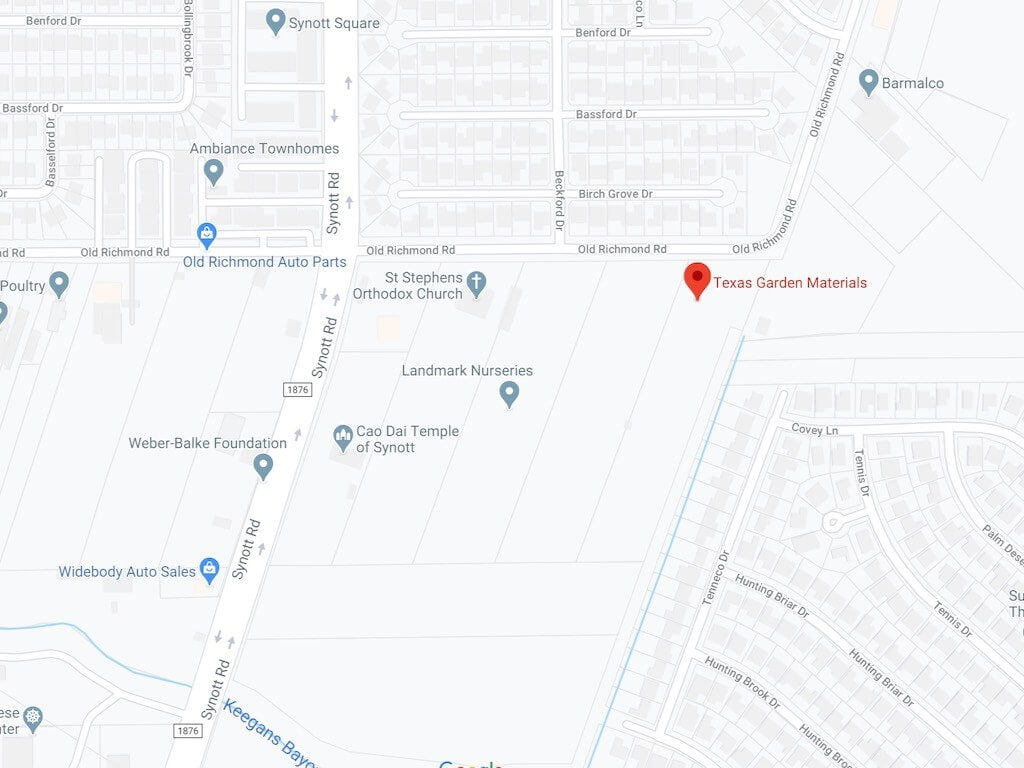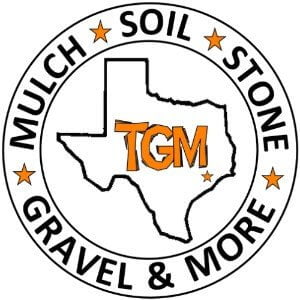Transform Your Curb Appeal with a Gravel Driveway
Are you tired of your dull asphalt or concrete driveway? It’s time to consider a gravel driveway the perfect choice for your home or business. Gravel driveways have been gaining popularity among homeowners and business owners, and for good reason. Not only are they visually appealing, but they offer several other benefits as well.
- Black Star Gravel Driveway
- Washed Limestone Gravel Driveway
- Crushed Concrete Gravel Driveway
- Limestone Base Gravel Driveway
- Pea Gravel Driveway
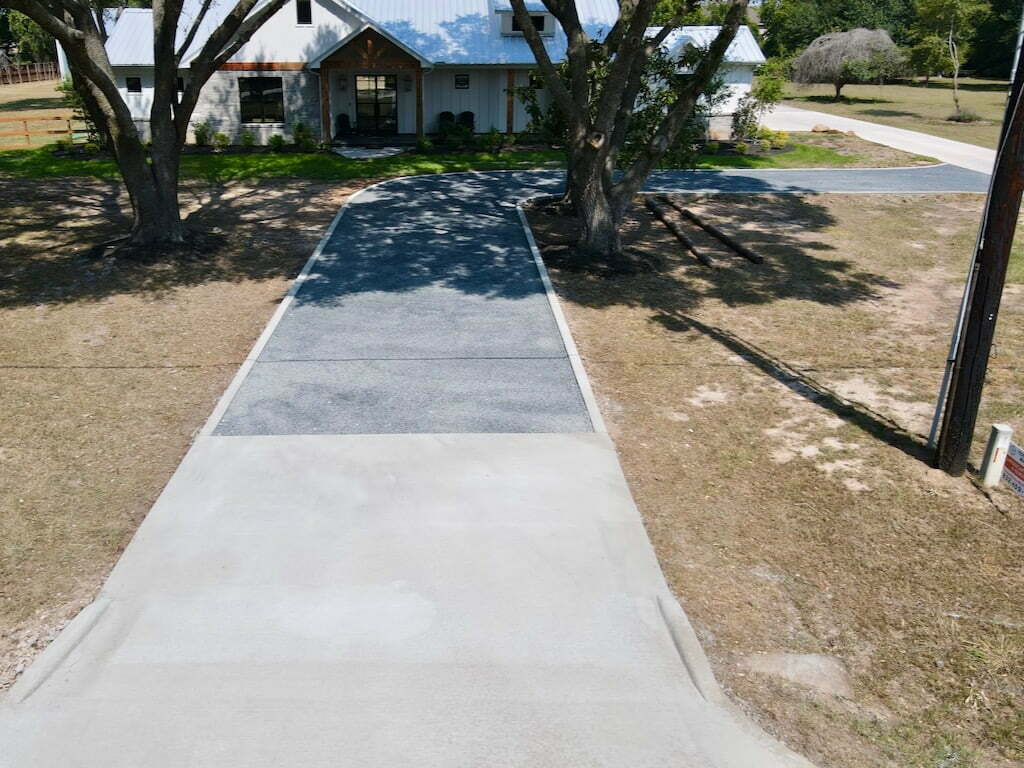
TGM Expert Gravel Driveway Contractors
A professionally installed gravel driveway can enhance your property’s aesthetic appeal and functionality. At TGM, our team specializes in crafting custom gravel driveways to meet your unique needs and preferences. Trust us to provide quality workmanship and elegant finishes that add value to your property.
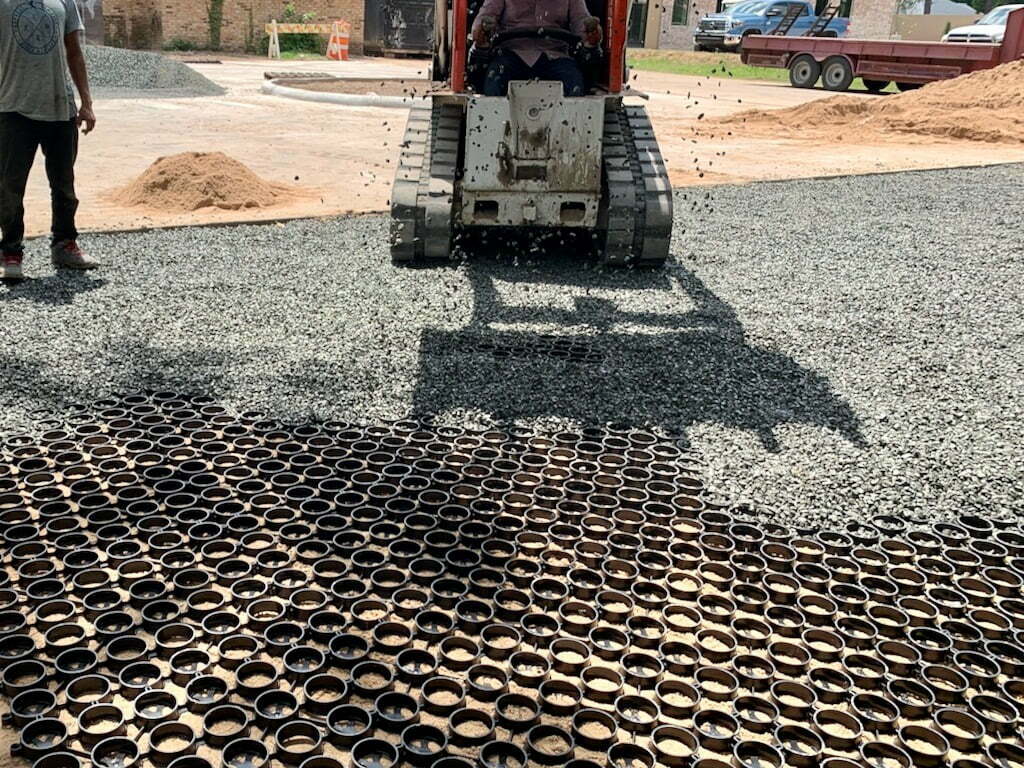
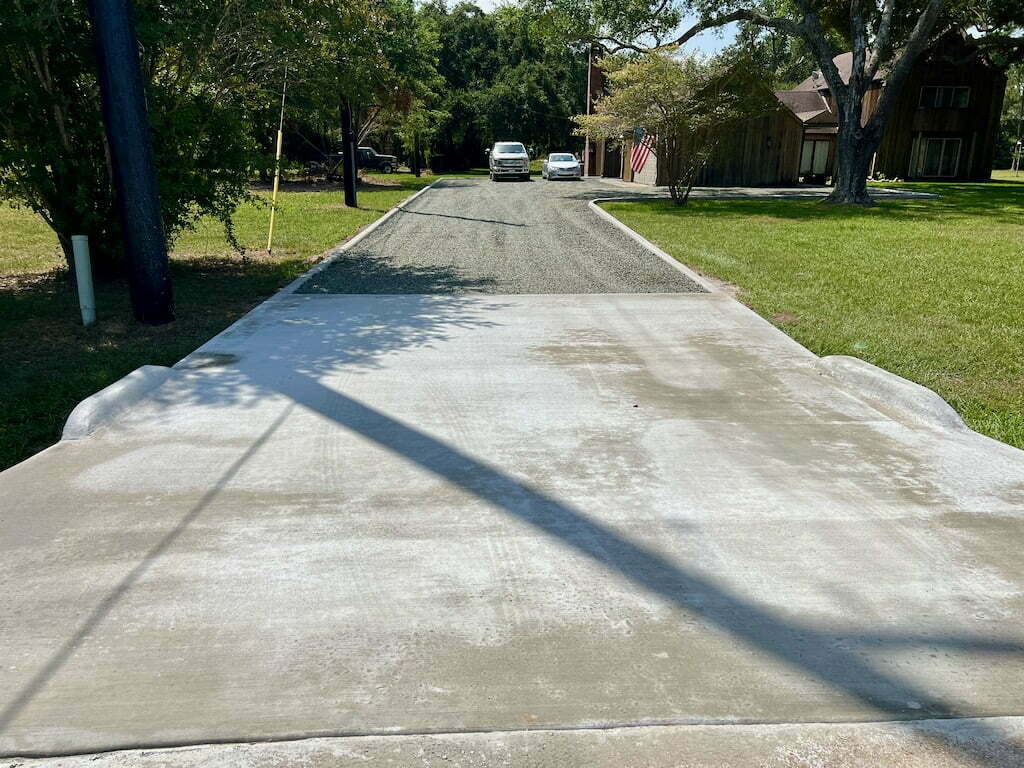
Explore the Pros and Cons of Different Gravel Driveway Types
If you’re planning to install a gravel driveway and are unsure which type would suit you best, we’re here to assist you. Various gravel driveway types have pros and cons, and as gravel driveways are gaining popularity, it’s vital to comprehend your choices to select the most suitable one for your requirements.
Pros of Gravel Driveways
- Affordability – Gravel driveways are a cost-effective option compared to concrete or asphalt, making them a popular choice for those who want to save money while still having a functional and attractive driveway.
- Easy Installation – Those with basic DIY skills can install gravel driveways without specialized equipment or expertise. You can easily create a functional gravel driveway with proper preparation and grading.
- Versatility – Gravel driveways come in various sizes, shapes, and colors, allowing you to customize the look to suit your aesthetic preferences. Gravel can be customized to match your preferred driveway style.
- Good Drainage – One of the benefits of using a gravel driveway is the excellent drainage it provides. The gaps between the stones allow water to seep through, preventing pooling and water damage, especially in areas that experience heavy rainfall.
- Low Maintenance – Maintaining a gravel driveway is a breeze compared to other options. The only necessary upkeep includes regular raking and occasional replenishment of gravel. If any repairs are needed, they can be quickly addressed by adding more gravel to the affected areas.
- Eco-Friendly – Gravel driveways are more eco-friendly than paved surfaces, allowing rainwater to seep into the ground, reducing runoff and replenishing groundwater. Gravel is also a local natural material that further minimizes environmental impact.
Cons of Gravel Driveways
If you’re planning to install a concrete driveway, there are several important factors to consider beforehand:
1. Cost: Determine your budget for the project. The cost of a concrete driveway can vary depending on its size, thickness, reinforcement, and any additional decorative elements.
2. Size and Layout: Consider the size and layout of the driveway. This includes the length and width and whether it will have curves, slopes, or require special shaping.
3. Subgrade Preparation: The subgrade is the surface on which the concrete will be laid. It must be well-compacted, stable, and capable of supporting the driveway. Proper subgrade preparation helps prevent cracks and structural issues.
4. Drainage: Ensure the driveway is designed to allow proper drainage. Water should be directed away from the house and other structures to prevent flooding and water damage.
5. Thickness of the Concrete: The standard thickness for a residential driveway is about 4 inches, but this can vary based on the expected load (such as heavy vehicles).
6. Reinforcement: Consider whether the concrete needs to be reinforced with steel rebar or wire mesh. This can add strength and help prevent cracking.
7. Concrete Mix: The quality of the concrete mix is crucial. It should be appropriate for the climate and use. In colder temperatures, a mix resistant to freeze-thaw cycles is essential.
8. Finish and Design: Decide on the finish for the concrete surface. Options include broom finish (for traction), stamped concrete (for decorative patterns), or colored concrete.
9. Expansion Joints: These are necessary to allow the concrete to expand and contract without cracking. The placement and spacing of expansion joints are essential considerations.
10. Climate: The local climate can affect the installation and maintaining a concrete driveway. In colder regions, the driveway should be able to withstand freeze-thaw cycles.
11. Permits and Regulations: Check with local authorities to see if permits are required for driveway construction. Also, be aware of any zoning laws or HOA rules that might apply.
Gravel for the Driveway
Gravel driveways are popular because they look natural and affordable. However, they do have some potential drawbacks. Despite these drawbacks, many homeowners and business owners still prefer them because their benefits outweigh the disadvantages. Let’s now explore the different types of gravel driveways that you can choose from.
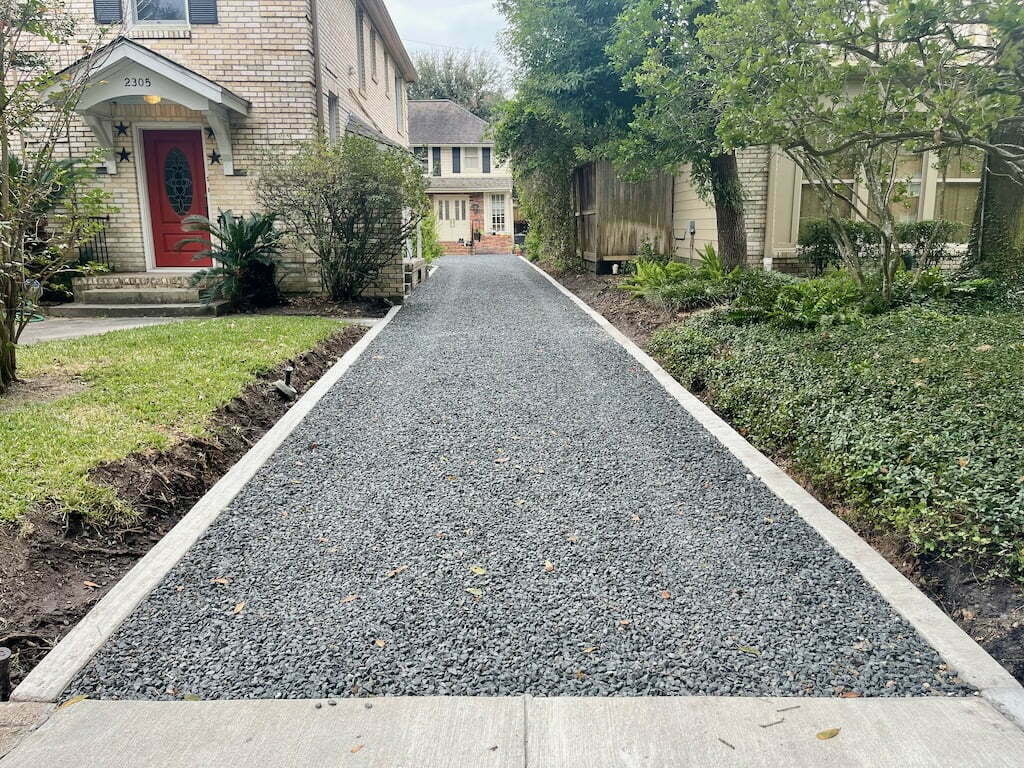
Different Types of Gravel Driveways
When it comes to gravel driveways, there are several types to choose from, each with unique characteristics. Understanding the differences between these types can help you select the right one for your needs.
Greater Houston Service Areas
- Greater Houston
- West University Place
- Heights
- River Oaks
- Memorial
- Bellaire
- Meyerland
- Pearland
- Sugar Land
- Richmond
- Rosenberg
- Katy
- The Woodlands
- Cypress
- Brookshire
- Fulshear & Beyond
Contact us to schedule a consultation for our driveway installation services. We deliver high-quality results that exceed expectations.

